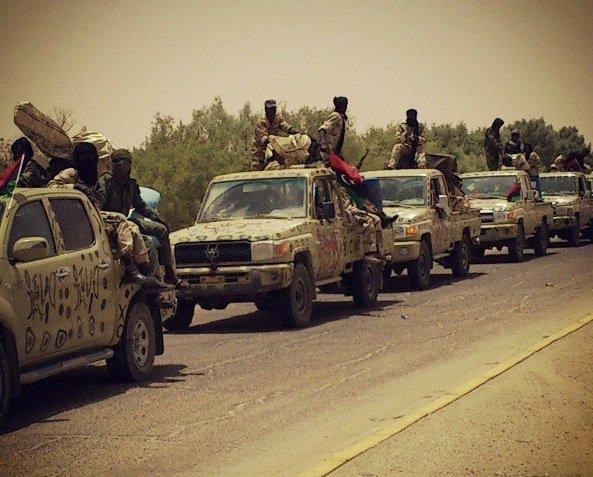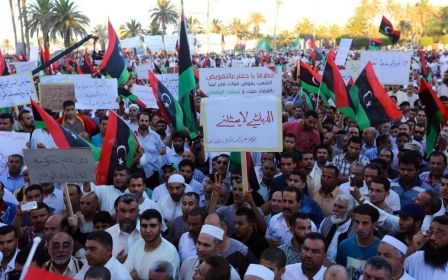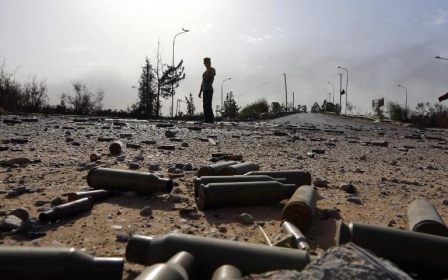5 soldiers killed, 25 missing in Libya's Benghazi

Militias fighting with Islamist groups in Libya’s eastern city of Benghazi have captured up to 25 soldiers and killed five others, according to an army commander in the city.
Special forces commander Fadhil al-Hasi told Reuters that fighters from Majlis al-Shura, a Misrata-linked militia coalition including the powerful Ansar al-Sharia, had attacked an army checkpoint, killing five.
“25 soldiers are missing”, he said, saying they had probably been abducted during the attack.
A police officer, Anwar al-Misrati, was assassinated in the city on Wednesday, when unknown militants fired a volley of shots at him.
Police and army personnel are frequently targeted in assassinations in Benghazi, which was the original site of rogue General Haftar’s anti-militia campaign launched in mid-May.
In a separate incident, a gas depot in a residential area was hit by a missile, causing a large fire to break out.
Two Libyans and an Egyptian national were injured in the incident.
Tebu fighters, originally from a nomadic Saharan tribe based on the borders of Libya, Niger and Chad, headed to Benghazi to offer reinforcements to Libyan forces after the capture, reports Libya Herald.
Units headed eastwards from areas in the southeast and southwest of the country on Wednesday to join the fight against Ansar al-Sharia militias and the Libya Shield brigades, who hold sway in much of the city.
An officer who spoke to Libya Herald declined to give exact numbers of the troops, but estimated that around 300 men had joined the fight in Benghazi.
Tebu fighting brigades officially pledged their support to General Haftar’s anti-militia campaign, Operation Dignity, in June.
A day earlier, nomadic Touareg leaders based in the southwest of the country rebuffed efforts by representatives from Misrata to secure Touareg support for the Misratan Libya Dawn militia, who took control of the capital Tripoli in late August.
The Misrata representative, Mohammed al-Ragoubi, also asked the Touareg for help in “securing” the Obari oil fields in southwestern Libya.
However, they declined, refusing to support one faction over another.
Middle East Eye propose une couverture et une analyse indépendantes et incomparables du Moyen-Orient, de l’Afrique du Nord et d’autres régions du monde. Pour en savoir plus sur la reprise de ce contenu et les frais qui s’appliquent, veuillez remplir ce formulaire [en anglais]. Pour en savoir plus sur MEE, cliquez ici [en anglais].





